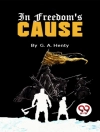In ‘Tristram of Blent’, Anthony Hope intricately weaves a tale that lies at the intersection of adventure and social commentary, presenting a richly textured narrative that explores themes of identity, loyalty, and the burdens of nobility. Set in the fictional landscape of Blent—a microcosm for class struggle and personal ambition—Hope employs a vivid literary style imbued with wit and irony, reminiscent of the narrative traditions of both Victorian literature and the emerging modernist ethos. As a work situated between the hopeful idealism of the 19th century and the disillusionments of the 20th, the novel challenges contemporary notions of heroism and morality through its compelling protagonist, who must navigate the complex interplay of personal desire and societal expectations. Anthony Hope, celebrated for his contributions to adventure fiction, gained prominence through his earlier work ‘The Prisoner of Zenda’. His keen insights into the human experience, shaped by his background in law and literature, allow him to craft multi-dimensional characters and engaging plots. His own experiences with class differences and legal intricacies inform the intricacies of ‘Tristram of Blent’, where the struggles of his characters echo those in Hope’s own life under the rigid societal hierarchies of his time. I wholeheartedly recommend ‘Tristram of Blent’ to readers seeking a thought-provoking exploration of personal and societal conflict. Hope’s masterful storytelling, combined with his layered character development, invites readers to reflect on their own values and the intricacies of their societal structures. The novel serves as both an entertaining adventure and a subtly woven critique of the complexities of human existence.
Sobre o autor
Anthony Hope, born Anthony Hope Hawkins on February 9, 1863, in London, England, is best known as a novelist and playwright who achieved lasting fame with ‘The Prisoner of Zenda’ (1894). With a literary style that wove together adventure, romance, and political intrigue, Hope captured the imagination of his contemporary readers. ‘Tristram of Blent’ (1901), albeit less well-known than ‘Zenda’, is a testament to Hope’s adept storytelling and his ability to explore complex character relationships within the framework of a compelling narrative. Hope was educated at Marlborough and at Balliol College, Oxford, before commencing a career in law. However, his passion for literature prevailed, leading him to pursue writing full-time after the success of ‘The Prisoner of Zenda’. His works, often set in the fictional realm of Ruritania, have been classified within the ‘Ruritanian romance’ genre, a term that has since been used to describe similar tales of romance and adventure in fictitious European countries. Despite the decline in popularity of his later works, Anthony Hope left an indelible mark on literature with his contribution to the genre of romantic adventure. Hope’s literary legacy spans over 30 novels and numerous short stories and plays. He passed away on July 8, 1933, in Walton-on-the-Hill, Surrey, England, but remains a significant figure in the historical tapestry of British literature.












